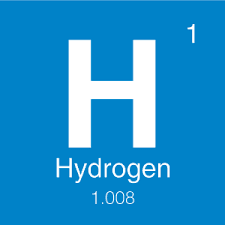Hydrogen Fuel - The Fuel of the Future
As we often hear in our day to day
lives, the availability of fuels is decreasing day by day and the biggest
concern in automobile is pollution due to these fuels, so the new idea and
search comes for zero pollution as well as the better availability,
renewability and efficiency too. Although, many researches are going on for the
alternate fuels but one of the most promising fuel source is Hydrogen which can
produce an abundant amount of energy and that too with zero emissions.
Hydrogen may seem
to be very abundant but pure hydrogen is not naturally available on earth in
large quantity. So, electrolysis and steam-methane reforming processes are
methods to produce hydrogen. In electrolysis, the electricity is passed through
water to separate the hydrogen and oxygen atoms. Obtaining hydrogen from this
process leads to low cost.
In steam-methane
reforming process, hydrogen is extracted from methane and as its by-product's,
carbon dioxide and carbon monoxide are obtained, which leads to global warming.
Hydrogen fuel is having many applications from
rocket-fuels to Hydrogen fuel-cells. Hydrogen fuel can be utilized to power the
vehicles in two ways i.e., as a fuel for IC engine and the Fuel cell in
electric vehicles. But the limitation of using hydrogen fuel in cars is its
difficulty to be stored due to its low volumetric density.
Liquid hydrogen
used in space-shuttles is more compressible than its gaseous form. It requires
cryogenic storage to cool it down. The storage tank must be well insulated, but
adding insulation increases cost. Liquid hydrogen has less energy density by
volume than hydrocarbon fuels such as gasoline by approximately a factor of 4.
Compressed hydrogen
is stored quite differently, it has good energy density by weight, but poor
energy density by volume against hydro-carbons, hence it requires larger tank
to store.
Car manufacturers
like BMW, Honda, Nissan etc have been developing and researching a solution to
increase the storage density. BMW had released its model BMW Hydrogen 7 utilizing
hydrogen along with gasoline as fuel in IC engine from 2005-2007.
 The model was
based on BMW’s traditional gasoline-powered BMW 7 Series line of vehicles. The
model was eccentric because unlike its competitors Honda, General Motors etc.
which are using the Hydrogen Fuel-cell to power the electric drives, BMW
hydrogen 7 channelled it to the engine.
The model was
based on BMW’s traditional gasoline-powered BMW 7 Series line of vehicles. The
model was eccentric because unlike its competitors Honda, General Motors etc.
which are using the Hydrogen Fuel-cell to power the electric drives, BMW
hydrogen 7 channelled it to the engine.
Many researches are going on to improve
the storage technology for hydrogen. FCTO i.e Fuel Cell Technologies Office is an organization conducting researches to advance hydrogen
storage systems technology. FCTO is aiming to provide adequate hydrogen storage
to meet on-board light-duty vehicle, material-handling equipment and portable
power applications.
Specific targets
include:
1.5kwh/kg system (4.5%wt
hydrogen)
1.0kwh/L system (0.030
kg hydrogen/litre)
Organizations like Hydrogen Storage
Engineering Centre of Excellence and Advanced Research Consortium are
constantly driving researches for understanding the interaction of hydrogen
with materials. They are also working toward the formation and release of
hydrogen from hydrogen storage materials and the analysis activities for
material based storage system technologies.
Use of hydrogen is
not limited to only cars and rockets. Hydrogen is also a fuel for driving the
nuclear fusion reactors which can solve all the energy problems of the world. We’ll
see about the first ever Nuclear Fusion reactor of the world in our next
article.
Stay Updated till
then……




Great going guys 🤘
ReplyDeleteThank you
DeleteAmazing !! 😉
ReplyDeleteThnx.
DeleteGood if it comes in practice
ReplyDeleteThe day is not very far. Only few limitations are needed to overcome.
Delete✌
ReplyDelete✌️
Delete